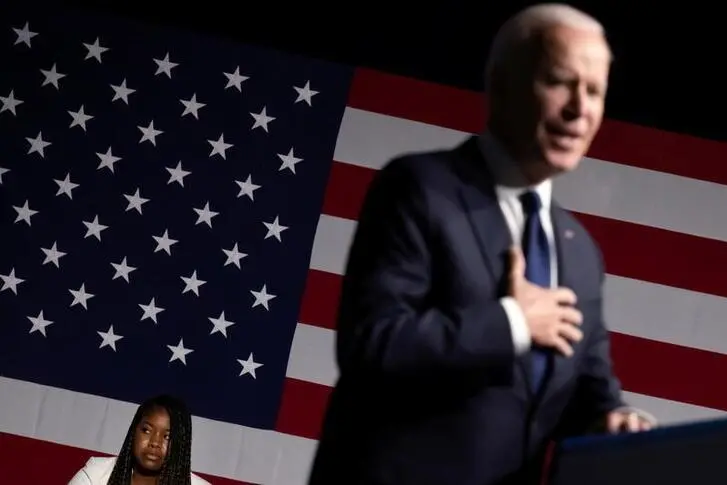PHOTO
WASHINGTON - U.S. President Joe Biden on Friday signed an executive order directing every single federal agency to work toward "environmental justice for all" and improve the lives of communities hit hardest by toxic pollution and climate change.
The order will establish a new Office of Environmental Justice within the White House to coordinate efforts across the government, and requires federal agencies to notify communities if toxic substances are released from a federal facility.
Disasters like the February derailment of a freight train in East Palestine, Ohio, that caused a hazardous chemical spill brought attention to environmental damage that some communities experience at higher rates.
"This is about people's health. It's about the health of our communities. It's only about the future of our planet," Biden told activists, lawmakers and others before signing the order in the Rose Garden at the White House.
The Democratic president, who could formally announce his re-election bid as early as Tuesday, said the order would deepen work to reverse years of policies - including discriminatory residential 'redlining' - that hurt Black and other minority communities.
He railed against Republican efforts to repeal climate provisions in the Inflation Reduction Act, a move he said would undermine work to reduce pollution and advance clean energy, instead of ending $30 billion in subsidies to the oil industry. "For far too long, communities across our country have faced persistent environmental injustice through toxic pollution, underinvestment in infrastructure and critical services, and other disproportionate environmental harms often due to a legacy of racial discrimination," the White House said in a statement.
The president has used his executive authority in areas, where his ability to deliver new laws from a divided Congress has been stymied.
Cathleen Kelly, a senior fellow at the Center for American Progress, said the order would help hold the federal government accountable for the impact of its policies on low-income, Black, Brown and Indigenous communities facing dangerous hazards.
"These communities experience inequitable living conditions tied to chronic disinvestment and systemic racism that increase vulnerability to climate change," she said in a statement.
U.S. Vice President Kamala Harris separately visited Miami on Friday to announce a $562 million investment in helping communities become more resilient to climate change.
Harris' trip comes as South Florida struggles with gasoline shortages after flooding last week disrupted deliveries and prompted some panic buying at the pump.
(Reporting by Steve Holland and Trevor Hunnicutt, additional reporting by Andrea Shalal and Doina Chiacu; Editing by Himani Sarkar, Kim Coghill and Aurora Ellis)





















